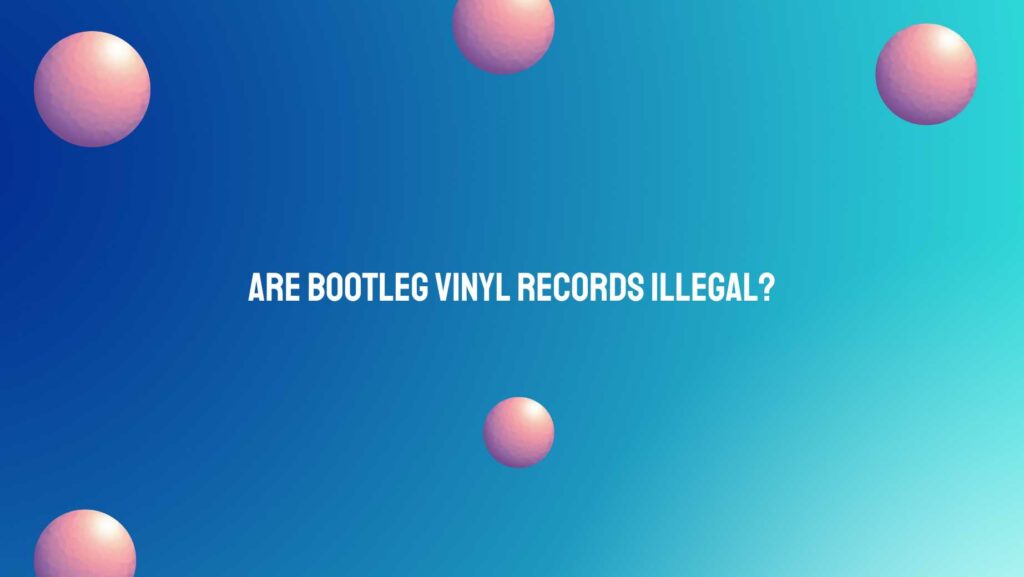Whether or not bootleg vinyl records are illegal depends on a number of factors, including the country in which you live and the specific circumstances surrounding the bootleg.
In general, bootlegging is the act of making and selling unauthorized copies of copyrighted material. This includes vinyl records, as well as CDs, DVDs, and other types of media.
In most countries, bootlegging is illegal. This is because copyright law gives the copyright holder the exclusive right to reproduce and distribute the copyrighted material. Bootlegging violates these exclusive rights.
However, there are some exceptions to the law against bootlegging. For example, in the United States, it is legal to make a single copy of a copyrighted work for personal use. This is known as the fair use doctrine.
In addition, some countries have laws that allow for the bootlegging of certain types of copyrighted material. For example, in some countries, it is legal to bootleg live recordings of concerts.
Finally, it is important to note that the legality of bootlegging can also depend on the specific circumstances surrounding the bootleg. For example, if a bootleg is made from a stolen recording, it may be considered theft in addition to copyright infringement.
If you are considering buying a bootleg vinyl record, it is important to be aware of the legal risks involved. Bootlegging is illegal in most countries, and bootlegs may be of poor quality. Additionally, buying bootlegs can support illegal activity.
If you are unsure whether or not a bootleg vinyl record is legal, it is best to err on the side of caution and not buy it. There are many legitimate ways to buy vinyl records, and there is no need to risk buying a bootleg.
Here are some tips for avoiding buying bootleg vinyl records:
- Buy records from reputable sellers.
- Inspect the record carefully before you buy it. Look for signs that the record is a bootleg, such as poor quality printing on the label or sleeve, or vinyl that is too thin or flimsy.
- Be wary of records that are priced too low. Original records can be expensive, but bootlegs are often sold at very low prices. If a record seems too good to be true, it probably is.
- Compare the record to other copies. If you can, compare the record to other copies of the same record. This can help you to identify any differences between the original and reissue versions.


